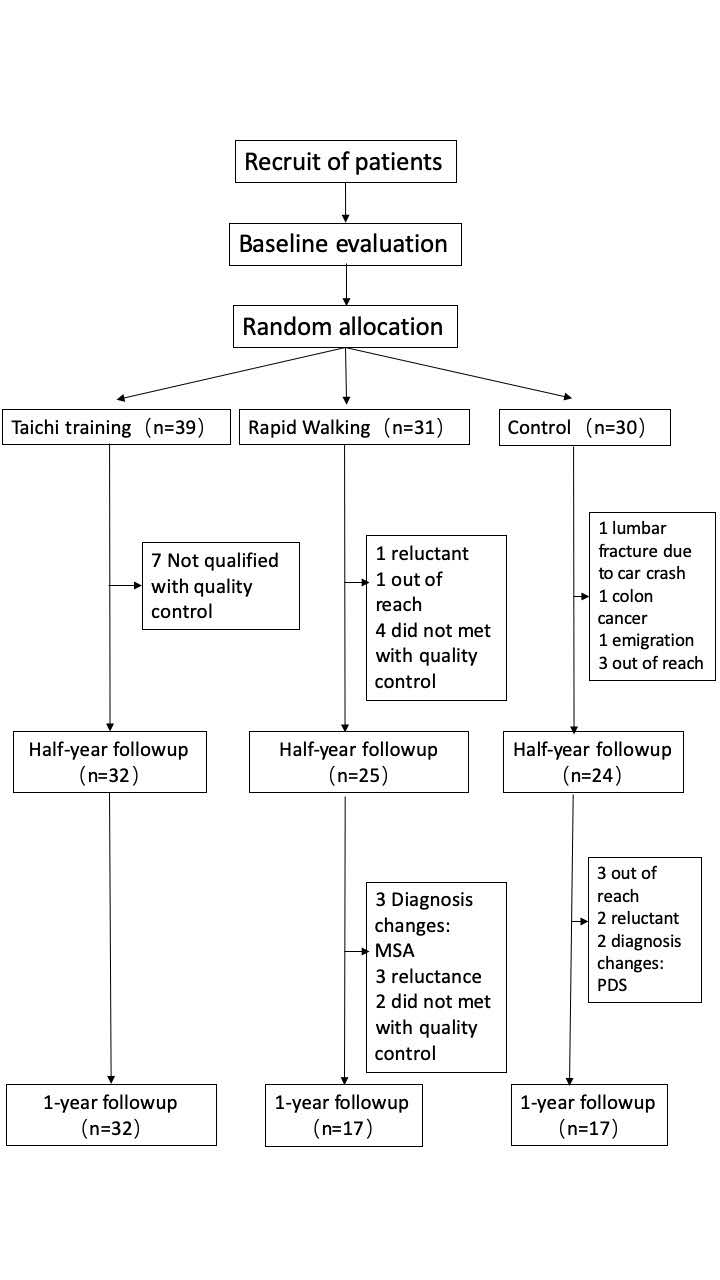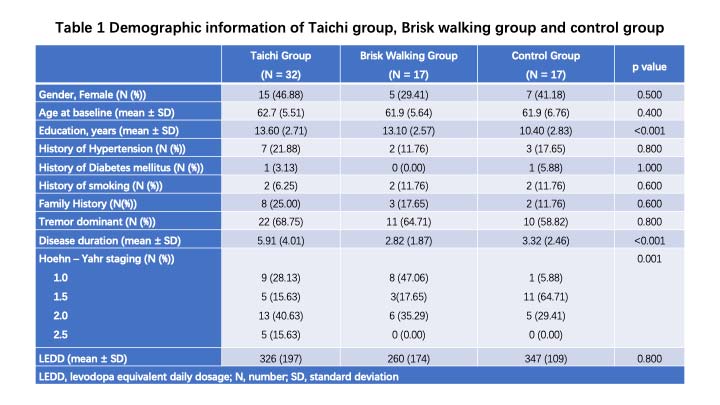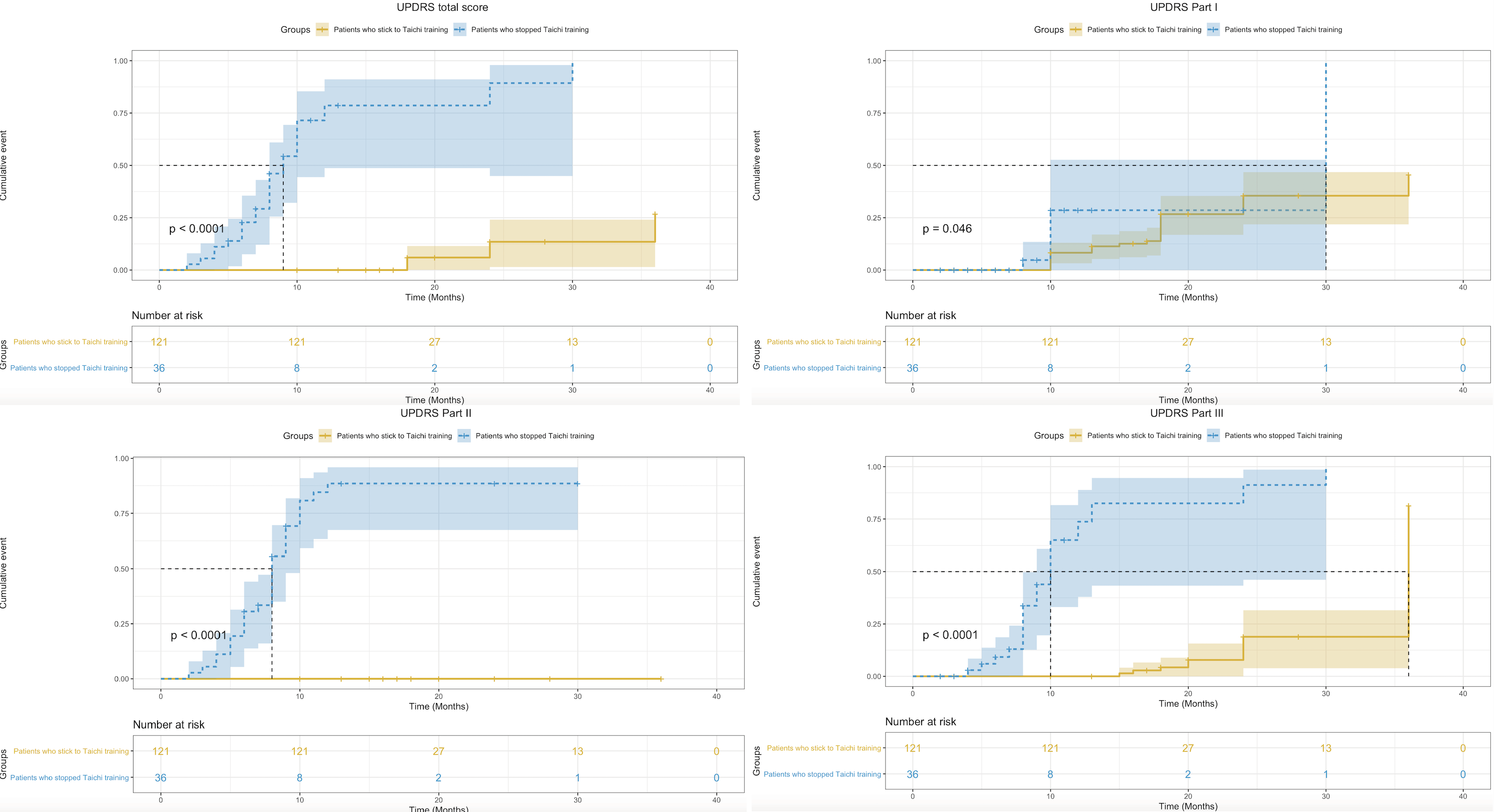Category: Parkinson’s Disease: Clinical Trials
Objective:
To discover the effect of physical exercise on motor and non-motor symptoms in Parkinson’s disease (PD), and to explore whether physical exercise could delay the disease progression.
Background:
Physical exercise has been shown to improve disease symptoms, mobility, balance, gait and quality of life in PD. However, whether physical exercise, such as Taichi and brisk walking, could delay the progression of PD is still unknown.
Method:
At phase one, 100 early-stage PD patients were enrolled into the study and randomly divided into three groups: Taichi group (n = 39), brisk walking group (n = 31) and control group (n = 30). The three groups received one-year Taichi training, brisk walking training and no-exercise intervention, respectively. Physical training was performed twice a week, 60min per time. We assessed all the subjects at baseline, 6 months and 12 months [figure 1, table 1]. The assessment included motor and non-motor symptoms by rating scales. Generalized estimating equations was used to assess the association of longitudinal data.
At phase two, number of patients participating in Taichi training was expanded to 157 in 5 successive training classes since 2016. They were assessed before training and at November 2019. Patients whose training were less than 60 min per time or less than twice per week were regarded as giving up training. We compared patients who stick to training with those who gave up training. Kaplan-Meier plots were introduced, we set endpoints for rating scales with quantiles. Patients with difference scores (follow-up minus baseline) of UPDRS above 3rd quantiles were defined as achieving endpoints.
Results:
Phase I: after one-year exercise training, both Taichi and brisk walking group performed better than control in UPDRS and Parkinson’s Disease Cognitive Rating Scale. Taichi group presented better performance in Time Up and Go, Berg Rating Scale, while brisk walking group performed better in Parkinson’s Disease Sleep Scale, Hamilton anxiety and depression rating scale [table 2].
Phase II: Kaplan Meier plots show that patients who gave up Taichi training were more likely to reach the bad endpoint [figure 2].
Conclusion:
Both Taichi and brisk walking could improve motor symptoms and cognition in PD. Taichi is more effective in improving gait and balance, while brisk walking has a better effect on sleep and mood. Persisting in Taichi training can delay the progression of motor symptoms in PD.
To cite this abstract in AMA style:
P. Huang, G. Li, Y.C He, S.D Chen. The Association of Taichi to Delayed Progression of Parkinson’s Disease [abstract]. Mov Disord. 2020; 35 (suppl 1). https://www.mdsabstracts.org/abstract/the-association-of-taichi-to-delayed-progression-of-parkinsons-disease/. Accessed July 26, 2024.« Back to MDS Virtual Congress 2020
MDS Abstracts - https://www.mdsabstracts.org/abstract/the-association-of-taichi-to-delayed-progression-of-parkinsons-disease/




